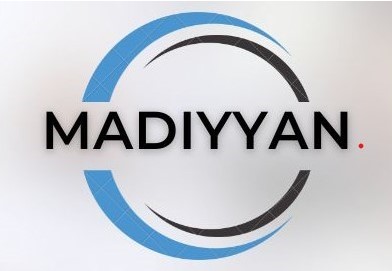Table of contents
(Digital Economy) What is The Role of Technology in Driving Economic Transformation

The digital economy refers to the economic activities that are based on digital technologies, such as the internet, mobile devices, artificial intelligence, and data analytics. It encompasses various sectors, including e-commerce, digital services, online platforms, and information and communication technology (ICT) industries. The digital revolution has significantly impacted the world economy, transforming business models, creating new opportunities, and reshaping traditional industries.
डिजिटल अर्थव्यवस्था उन आर्थिक गतिविधियों को संदर्भित करती है जो डिजिटल प्रौद्योगिकियों पर आधारित हैं, जैसे कि इंटरनेट, मोबाइल डिवाइस, कृत्रिम बुद्धिमत्ता और डेटा एनालिटिक्स। इसमें ई-कॉमर्स, डिजिटल सेवाओं, ऑनलाइन प्लेटफॉर्म और सूचना और संचार प्रौद्योगिकी (आईसीटी) उद्योगों सहित विभिन्न क्षेत्र शामिल हैं। डिजिटल क्रांति ने विश्व अर्थव्यवस्था को महत्वपूर्ण रूप से प्रभावित किया है, व्यापार मॉडल को बदल दिया है, नए अवसर पैदा किए हैं, और पारंपरिक उद्योगों को फिर से आकार दिया है।

Digital Transformation:
The digital economy is driving a widespread transformation in businesses and industries. Companies are adopting digital technologies to streamline operations, enhance efficiency, and improve customer experiences. Digital transformation involves leveraging data analytics, cloud computing, automation, and other technological advancements to gain a competitive edge and adapt to changing market dynamics.
डिजिटल परिवर्तन:
डिजिटल अर्थव्यवस्था व्यवसायों और उद्योगों में एक व्यापक परिवर्तन चला रही है। कंपनियां परिचालन को सुव्यवस्थित करने, दक्षता बढ़ाने और ग्राहकों के अनुभवों को बेहतर बनाने के लिए डिजिटल तकनीकों को अपना रही हैं। डिजिटल परिवर्तन में प्रतिस्पर्धी बढ़त हासिल करने और बदलते बाजार की गतिशीलता के अनुकूल होने के लिए डेटा एनालिटिक्स, क्लाउड कंप्यूटिंग, स्वचालन और अन्य तकनीकी प्रगति का लाभ उठाना शामिल है।

E-commerce and Online Marketplaces:
The rise of e-commerce and online marketplaces has revolutionized the way goods and services are bought and sold. Online platforms provide a global reach, enabling businesses to access customers worldwide. Consumers benefit from the convenience of shopping online, wider product selections, and personalized recommendations. E-commerce has become a significant driver of economic growth, creating opportunities for businesses of all sizes.
ई-कॉमर्स और ऑनलाइन मार्केटप्लेस:
ई-कॉमर्स और ऑनलाइन मार्केटप्लेस के उदय ने वस्तुओं और सेवाओं को खरीदने और बेचने के तरीके में क्रांति ला दी है। ऑनलाइन प्लेटफ़ॉर्म एक वैश्विक पहुंच प्रदान करते हैं, जिससे व्यवसायों को दुनिया भर में ग्राहकों तक पहुंचने में मदद मिलती है। उपभोक्ताओं को ऑनलाइन खरीदारी, व्यापक उत्पाद चयन और व्यक्तिगत सिफारिशों की सुविधा से लाभ होता है। ई-कॉमर्स आर्थिक विकास का एक महत्वपूर्ण चालक बन गया है, जिससे सभी आकारों के व्यवसायों के लिए अवसर पैदा हो रहे हैं।

Digital Payments and Financial Technology:
The digital economy has transformed the financial landscape through the emergence of digital payment systems and financial technology (fintech) innovations. Mobile payments, digital wallets, and cryptocurrency have revolutionized the way transactions are conducted, making payments faster, more secure, and more convenient. Fintech solutions have increased financial inclusion by providing access to banking services and credit for underserved populations.
डिजिटल भुगतान और वित्तीय प्रौद्योगिकी:
डिजिटल अर्थव्यवस्था ने डिजिटल भुगतान प्रणालियों और वित्तीय प्रौद्योगिकी (फिनटेक) नवाचारों के उद्भव के माध्यम से वित्तीय परिदृश्य को बदल दिया है। मोबाइल भुगतान, डिजिटल वॉलेट और क्रिप्टोक्यूरेंसी ने लेनदेन करने के तरीके में क्रांति ला दी है, जिससे भुगतान तेज, अधिक सुरक्षित और अधिक सुविधाजनक हो गया है। फिनटेक समाधानों ने बैंकिंग सेवाओं तक पहुंच और वंचित आबादी के लिए ऋण प्रदान करके वित्तीय समावेशन में वृद्धि की है।

Gig Economy and Remote Work:
The digital economy has facilitated the rise of the gig economy, where individuals engage in temporary, freelance, or on-demand work. Online platforms connect workers with employers, offering flexibility and opportunities for income generation. Remote work has become more prevalent, allowing individuals to work from anywhere, transcending geographical boundaries, and increasing work-life balance.
गिग इकोनॉमी और रिमोट वर्क:
डिजिटल अर्थव्यवस्था ने गिग अर्थव्यवस्था के उदय की सुविधा प्रदान की है, जहां व्यक्ति अस्थायी, फ्रीलांस या ऑन-डिमांड काम में संलग्न हैं। ऑनलाइन प्लेटफ़ॉर्म श्रमिकों को नियोक्ताओं के साथ जोड़ते हैं, आय सृजन के लिए लचीलापन और अवसर प्रदान करते हैं। दूरस्थ कार्य अधिक प्रचलित हो गया है, जिससे व्यक्तियों को कहीं से भी काम करने की अनुमति मिलती है, भौगोलिक सीमाओं को पार करते हुए, और कार्य-जीवन संतुलन में वृद्धि होती है।

Data Analytics and Artificial Intelligence (AI):
The digital economy thrives on data analytics and AI technologies, which enable businesses to derive insights, make data-driven decisions, and automate processes. AI applications range from virtual assistants and chatbots to predictive analytics and machine learning algorithms. These technologies enhance productivity, optimize resource allocation, and drive innovation across sectors.
डेटा एनालिटिक्स और आर्टिफिशियल इंटेलिजेंस (एआई):
डिजिटल अर्थव्यवस्था डेटा एनालिटिक्स और एआई प्रौद्योगिकियों पर पनपती है, जो व्यवसायों को अंतर्दृष्टि प्राप्त करने, डेटा-संचालित निर्णय लेने और प्रक्रियाओं को स्वचालित करने में सक्षम बनाती है। एआई एप्लिकेशन वर्चुअल असिस्टेंट और चैटबॉट से लेकर प्रेडिक्टिव एनालिटिक्स और मशीन लर्निंग एल्गोरिदम तक हैं। ये प्रौद्योगिकियां उत्पादकता बढ़ाती हैं, संसाधन आवंटन का अनुकूलन करती हैं, और विभिन्न क्षेत्रों में नवाचार को बढ़ावा देती हैं।

